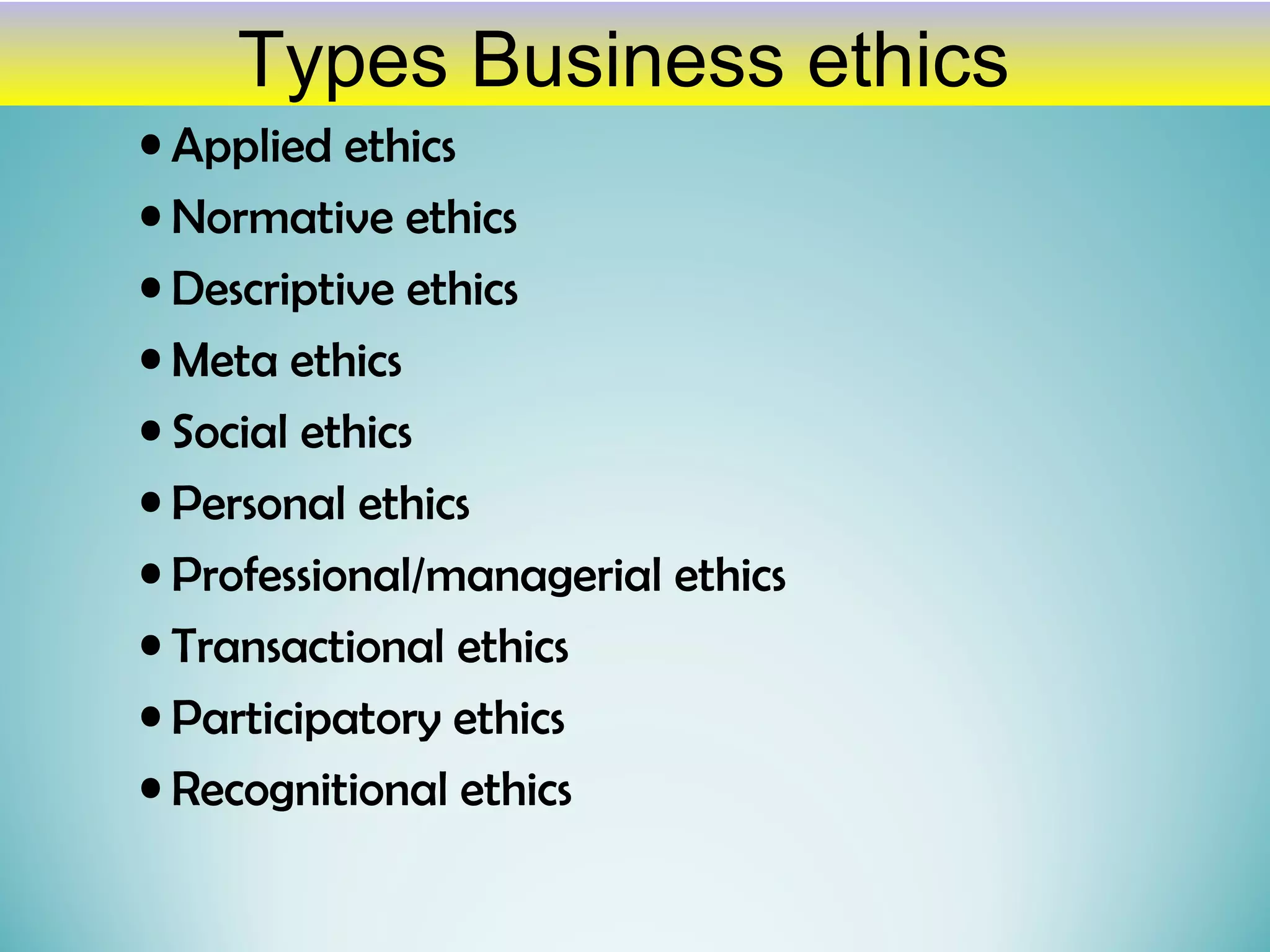The document discusses business ethics, including defining ethics, the importance of ethics in business, principles of business ethics, and factors that influence ethics such as culture, managerial values and attitudes, and sources of business ethics. It provides examples and explanations of key concepts in business ethics and outlines objectives, scope, and needs for incorporating ethics into business practices.



























































